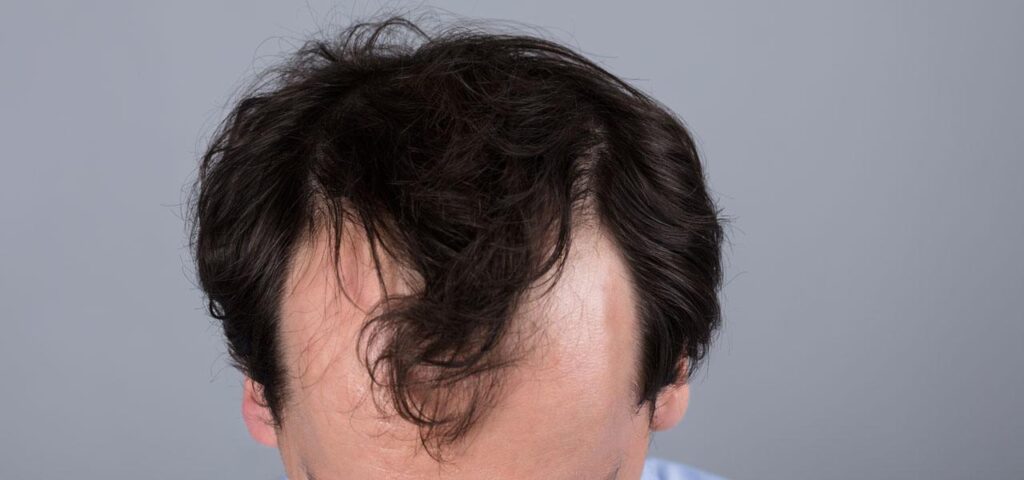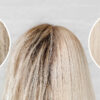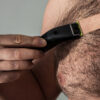It is normal to shed hair which regrows in natural cycles. However, some factors disturb this process and you lose hairs which do not regrow. If you notice developing a receding hairline it can be a symptom of androgenetic alopecia . Even 70-80 per cent of men and 30-40 per cent of women suffer from this type of alopecia. Hair loss frequently causes the patient to feel uncomfortable. So maybe you should consider fighting this problem?
What is androgenetic alopecia?
The causes of androgenic alopecia include genetic factors and hormonal changes. They Involves the follicles hypersensivity to androgens i.e. male hormones. These hormones are also produced by women but at lower levels. Hypersensitivity to 5α-dihydrotestosterone (DHT) is considered the cause of hair loss. It is a derivative of testosterone which 5-alpha-reductase converts into DHT. In influences follicles androgen receptors and causes their miniaturization. In addition, the hair growth phase is shorter which results in thinner and weaker hair. Hair loss is more intensive and it regrows slowly. It causes a receding hairline i.e. bald patches on the scalp or just thinner and weaker hair.

Hair loss treatment
The most common hair loss treatment option in the case of androgenetic alopecia are invasive methods (surgeries) allowing hair restoration. The best solution is a hair transplant. A FUE hair transplant is a successful method of hair restoration. It involves extraction from occiput small pieces of skin with follicles which are transplanted into the recipient area. Such transplant rejection is very rare because material is extracted from the patient’s skin. It also helps avoiding allergic reactions.
Treatment of androgenetic alopecia
Every year this hair transplant technique is being improved. It is a state-of-the-art hair transplant method. Many specialists work in hair transplant clinics in Warsaw, but you should choose the most experienced one in FUE hair transplants. Only precisely performed hair transplant surgery guarantees spectacular effects after 6 months and which continue for the years that follow.
Diet preventing hair loss
If you want to have beautiful hair you should prevent its loss. In addition, well-nourished follicles ensure good hair condition. So you should provide essential supplements, macro and microelements in your diet. You should eat a healthy diet rich in low-glycemic food types. Patients with highly elevated blood sugar levels have been observed to experience androgenetic alopecia . A diet high in carbohydrates is unhealthy not only for your hair but the whole body as well. A healthy blood sugar level helps prevent hair loss. It is also essential to eat food which is rich in proteins. The sources of protein include meat and legumes such as soy or lentil. It is recommended to eat both plant and animal proteins as well as lots of fish. Eggs are a rich source of amino acids which are essential for healthy follicles.
ALA and GLA acids
Alpha lipoic acid (ALA) helps prevent hair loss. It is a type of omega−3 fatty acids which have a beneficial effect on the body. Its sources include rapeseed and linseed oils, walnuts, pumpkin seeds, wheat and soy. Gamma-linolenic acid or GLA is a type of omega-6 fatty acids. It is also a 5α-reductase inhibitor which nourishes hair. A rich source of GLA is tailwort which can be used in soups, sauces, meat and salads.
Vitamins and minerals to stop androgenetic alopecia
A diet rich in vitamins and minerals is crucial for healthy hair and the body in general. Vitamins B, E and D can prevent hair loss. Vitamin D is synthesized from sun exposure so you should occasionally expose your skin to the sun. Other sources of vitamin D are liver, dairy products, fish and cereals. People suffering from alopecia are frequently deficient in vitamin B6. Their diet should include peas, beans, bran, nuts and carrots. Vitamin E boosts microcirculation by stimulating the scalp. Its sources are spinach, broccoli, almonds and peanuts. Zinc, iodine, iron and silicon dioxide have beneficial effects in people with alopecia. Silicon dioxide enhances other mineral absorption so it is a very important element of your diet. Its good sources are millet, oat, algae and barley. Iodine can be found in cow’s milk, strawberries and boiled eggs. Foods rich in zinc are liver, beef and chickpea.
Formulations and dietary supplements
You can use different dietary supplements and herbs to boost your bodily functions. Vitamin B and biotin products are essential for a healthy hair growth cycle. Products helping keep healthy iron levels are also beneficial. It is also recommended to use herbs rich in phytoestrogens such as red clover, black cohosh and Angelica L. It is also recommended to take probiotics which produce B vitamins in the gut.
If you want to have healthy, thick and shiny hair, you should eat a low-glycemic diet rich in vitamins and minerals. If you suffer from androgenetic alopecia , you should contact an experienced specialist. He/she will advise the appropriate hair transplant method to ensure spectacular effects for the years that follow.






Hello. I was diagnosed with PCOS recently. Which makes sense why all this years the hair on my crowns had been thinning. My gynae prescribed YFS supplements and Glucophage. Hopefully it can help with my hair as well.